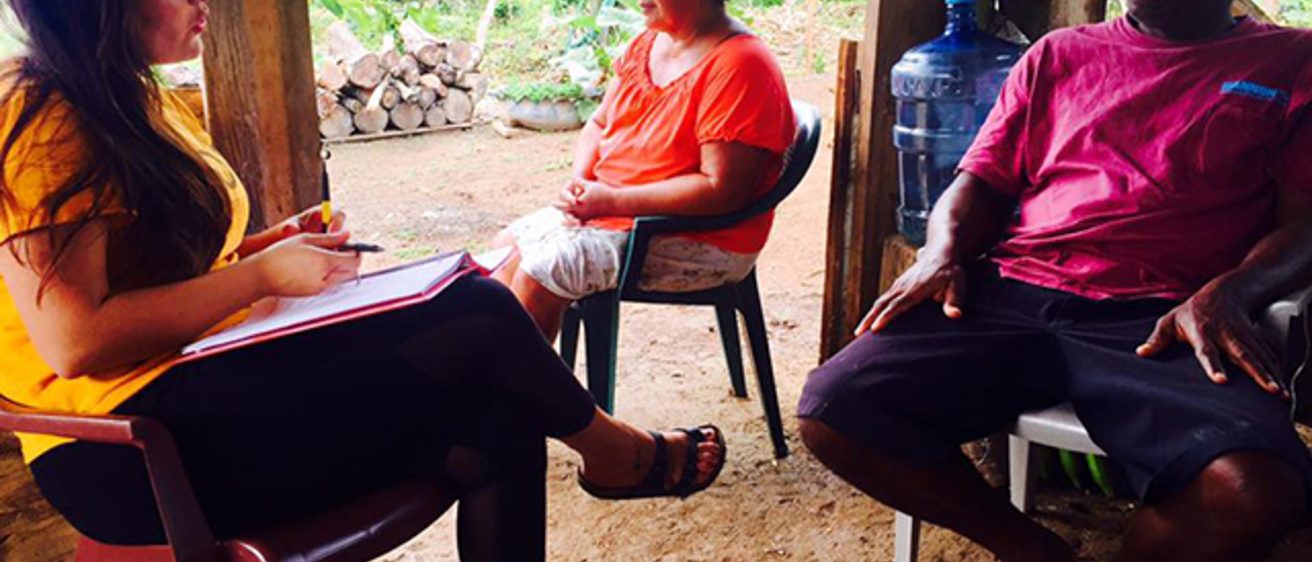Every year during spring break, University of Iowa faculty member Bob Walker takes a group of entrepreneurial students to consult with small-business owners in the village of San Pedro Columbia, Belize.
Last fall, UI student Mackenzie Phillips visited on her own as part of a research assignment and found Walker’s efforts have made a big difference in helping Belizeans improve their livelihoods through sustainable entrepreneurialism.
“Some of them became emotional telling me how much they appreciated working with the students and what a difference they made,” says Phillips, a senior from Remsen, Iowa, majoring in marketing and minoring in social work. “One café owner was in tears telling me how our students taught her about short- and long-term goals, which makes it so much easier to manage her restaurant.”
Walker, a lecturer in the Tippie College of Business and John Pappajohn Entrepreneurial Center (JPEC), has been taking students to Belize for five years, starting when he taught at Mount Mercy University in Cedar Rapids. San Pedro Columbia is a challenge for entrepreneurs because of its small market size—the population is about 700—and remote location in southern Belize.
The region has some ecotourism, and Mayan historical sites dating back to 700 A.D. also generate economic activity. The rest of the economy is made up mostly of traditional farming, chocolate making, and hand-weaving Mayan arts and embroidery. Most entrepreneurs’ businesses support their families and provide services to the community and tourists.
Walker brings students to places like San Pedro Columbia because he believes it’s important for Hawkeyes to share their intellectual capital with the world, especially with those who are trying to make a better life for themselves. He tells his students to approach their work in the spirit of service, learning in a place few of them might ever have an opportunity to visit. The work not only gives the students real-world experience analyzing businesses and suggesting ways for them to improve, it’s a cross-cultural exchange that can change their lives.
“We want to help the entrepreneurs make real, sustainable change with their businesses to find their passions and help them make their dreams come true within the limitations they face in Belize,” Walker says. “In an environment like this, little things can make a huge difference.”
Walker’s students have worked in southern Belize with Mayan artisans, restaurateurs, solar fruit dryers, an art gallery, a guest house with an immersive Mayan cultural experience, and an elementary school teaching sustainable agriculture. Much of their effort focuses on analyzing business systems and working with the entrepreneurs to identify target markets and improve branding, inventory control, and customer service. Walker says the students are applying what they learn in the classroom to help others within the constraints of a developing nation.
Walker commissioned Phillips to assess the long-term results of his and his students’ work. She spent one week in San Pedro Columbia last November, living with a local family and talking with 10 businesses that Walker’s students consulted with.
Phillips wrote a questionnaire for clients to complete, visited businesses, and conducted interviews with the entrepreneurs assessing the students’ impact. She will present her research and findings at the Venture Well Open conference in Washington, DC, March 23–25.
All the entrepreneurs said business improved significantly as a result of the UI students’ work. One craft-shop owner reported sales tripled after she took the students’ advice. Another still proudly used the same inventory management book given by a student.
“The key to international development at the micro level is exposing individuals to knowledge and business practices and adapting them to work in their local environment,” says Phillips. “It was 100 percent positive feedback, and it was so inspiring to talk with the local entrepreneurs.”
